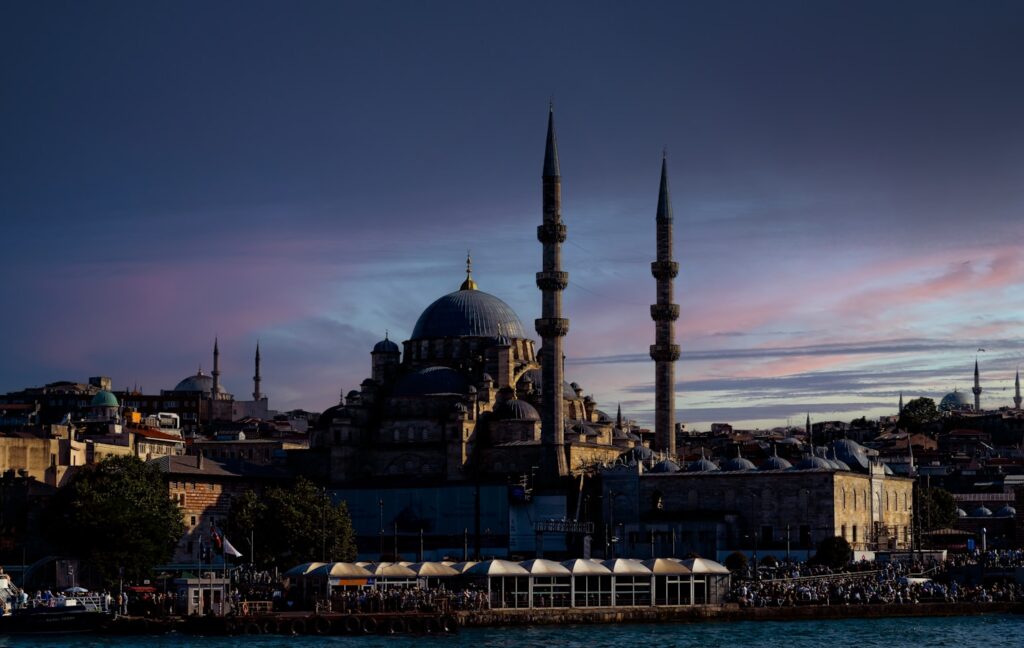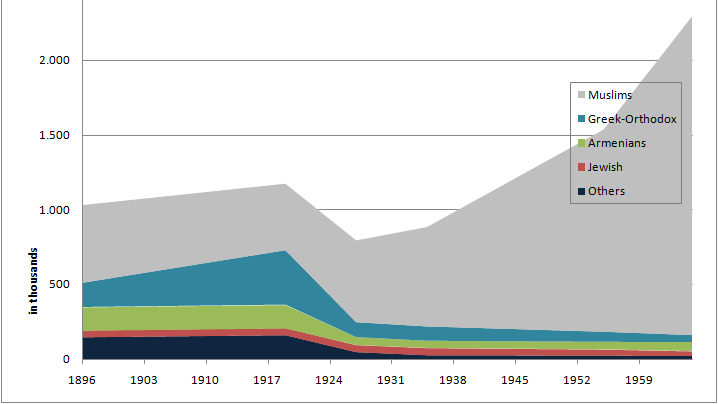Istanbul, a city rich in history and diversity, boasts a unique population structure influenced by various religious affiliations. In this article, we explore the Istanbul population by religion and the city’s religious demographics, focusing on the predominant faiths and their historical significance, as well as the implications for social and cultural dynamics in this vibrant metr

Istanbul Population by Religion: Historical Background and Religious Composition
Istanbul, once known as Byzantium and later Constantinople, has a rich tapestry of religious demographics that have evolved significantly over centuries.
Founded by the Greeks, the city became a major center of Christianity, particularly after Emperor Constantine made it the capital of the Byzantine Empire in 330 AD. Following the Ottoman conquest in 1453, Istanbul transitioned into a predominantly Muslim city, becoming the heart of the Islamic world.
Historically, Muslims, Christians, and Jews coexisted in relative harmony, particularly under Ottoman rule, which embraced a multicultural approach through the millet system. This allowed for religious autonomy within their communities, fostering a vibrant civil society.
This overview of the Istanbul population by religion underscores the diverse religious heritage that characterizes the city’s social fabric.
Key historical events, such as the fall of Constantinople, marked a significant shift in power and religious dominance, paving the way for Islam’s prominence. As the city expanded and industrialized, its cosmopolitan nature remained, with diverse religious communities influencing the cultural and social fabric of Istanbul. Today, while the Muslim majority predominantly shapes the city’s identity, the presence of historical Christian and Jewish populations maintains its diverse heritage, underlining Istanbul’s unique historical narrative.These historical shifts have left lasting impacts on the Istanbul population by religion and continue to shape contemporary religious demographics.
Islam: The Dominant Faith
The influence of Islam is evident in the city’s architecture, with grand mosques like the Sultan Ahmed Mosque and Hagia Sophia serving as symbols of faith and artistic achievement. These structures not only act as places of worship but also as community centers where cultural events and gatherings take place. Mosques, characterized by their stunning minarets and intricate calligraphy, are focal points of daily life, fostering a sense of community and belonging among believers.
Daily practices, such as attending Friday prayers or engaging in communal iftars during Ramadan, further illustrate the integral role of Islam in shaping the social fabric of Istanbul. The celebration of religious holidays, marked by public festivities and gatherings, reinforces the significance of faith in the lives of Istanbul’s residents, embedding it deeply within the city’s vibrant cultural tapestry.
Christianity and Other Faiths
Istanbul’s Christian minority plays a pivotal role in the city’s rich tapestry of religious diversity. Predominantly represented by the Greek Orthodox and Armenian Apostolic communities, these groups have roots extending back centuries. The Greek Orthodox Church, centered around the Ecumenical Patriarchate of Constantinople, remains a hallmark of Eastern Orthodox Christianity. The community has faced significant challenges, including population decline due to emigration and political tensions, yet it continues to contribute to Istanbul’s cultural heritage through its historic churches, schools, and vibrant traditions.
The Armenian Apostolic Church, one of the oldest Christian denominations, also holds a significant place in Istanbul’s religious landscape. The Armenians contribute richly to arts and commerce, with their churches, such as the impressive Surp Takavor, serving as cultural symbols.
Beyond these predominant communities, Istanbul is home to smaller groups, including Jews and various Protestant denominations, which often navigate a complex relationship with a predominantly Muslim culture. Secularism in modern Istanbul impacts these minorities, challenging their practices while fostering a unique coexistence that shapes the city’s identity. With secular governance, these communities navigate their faith against the backdrop of a modern, diverse urban environment.
Implications of Religious Diversity on Society
Istanbul’s rich tapestry of religious diversity significantly impacts its social fabric and urban dynamics. The majority Muslim population, which accounts for approximately 98% of the city’s residents, coexists with significant Christian and Jewish communities, creating a complex societal interplay. This diversity shapes interfaith relations, fostering opportunities for dialogue and cultural exchange through various festivals, such as the Istanbul Biennial, that celebrate both secular and religious expressions.
However, the city’s religious plurality also presents unique challenges. Tensions sometimes arise between orthodox religious practices and the principles of secular governance, particularly regarding public space and religious expression. For instance, mosque activities and church services often vie for visibility and access, leading to disputes over urban planning.
Despite these challenges, the city’s diverse religious landscape promotes communal initiatives aimed at shared social goals, such as education and charity. The potential for collaboration across faiths remains a powerful force for unity, exemplified by interfaith dialogues that enhance tolerance. Thus, Istanbul’s religious demographics, while intricate, offer both obstacles and opportunities for a more harmonious and inclusive society.
Conclusions
In conclusion, Istanbul’s population reflects a complex tapestry of religious beliefs, primarily dominated by Islam. Understanding these demographics not only sheds light on Istanbul’s cultural heritage but also informs discussions on societal interactions and the city’s evolving identity as a melting pot of traditions and faiths.
